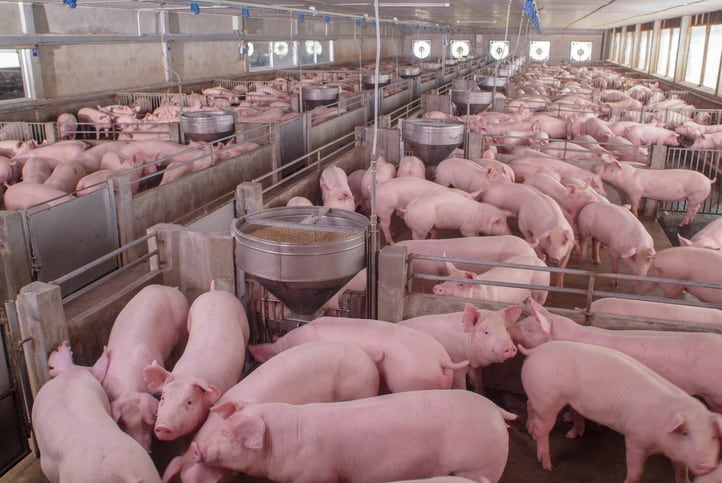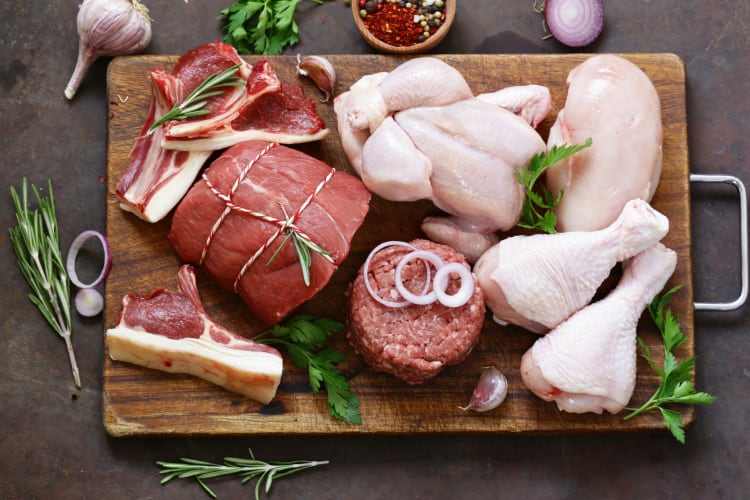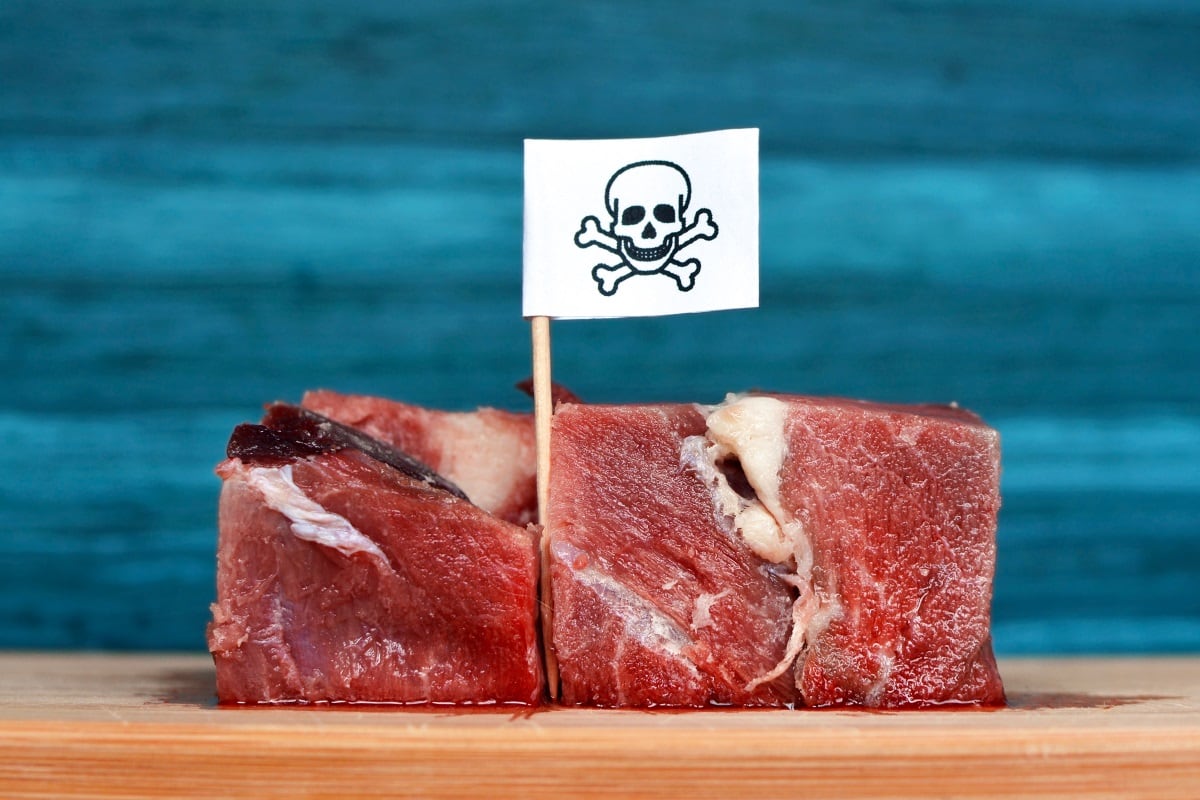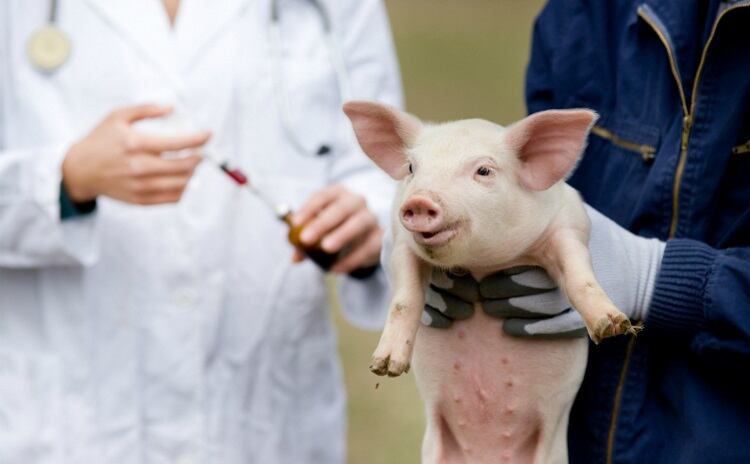In 2019, 1.27 million deaths were directly attributed to antimicrobial resistance (AMR), which also contributed to 4.95 million more fatalities, according to a global analysis from medical journal The Lancet. The accelerating AMR crisis, according to a report commissioned by the UK government, could see the number of deaths due to antibiotic resistant infections increase to 10m by 2050.
The WHO has stated: “Antibiotic resistance is rising to dangerously high levels in all parts of the world… Without urgent action, we are heading for a post-antibiotic era, in which common infections and minor injuries can once again kill.”
Maria Lettini, Executive Director at non-profit the FAIRR Initiative, said that the latest report might be ‘shocking’ but ‘sadly’ its findings are not surprising.
The over-use of antibiotics on animals destined to enter the food chain – either to promote growth or as a preventative treatment for healthy animals – has been linked to the development of so-called ‘superbugs’ that are resistant to antibiotics. Today, animal agriculture accounts for over 70% of the antibiotics used globally.
“The production of animals in industrial conditions is literally a breeding ground for disease. As a quick fix, companies are using antibiotics critical to human health for non-essential purposes to promote quick growth and to guard against diseases that flourish in overcrowded conditions,” Lettini explained.
"These antibiotics also spill out of farms, into our soil, air, and water, driving antimicrobial resistance. Alarmingly, just 12% of the world’s largest animal protein producers assessed in the Coller FAIRR Index have committed to ending the routine – ie, non-essential— use of all antibiotics.”
The FAIRR Initiative have done extensive work on the subject of AMR, including co-founding the Investor Action on AMR coalition. Further urgent action, Lettini believes, is needed to avoid a crisis of our own making. “There is no time to wait. The livestock industry must act now to curb the industry’s contribution to this silent pandemic, or risk threatening the future of global health."
New EU rules on antibiotics in animal production
In the European Union – where the use of antibiotics to promote growth has been banned since 2006 – further restrictions on their use in animal agriculture are coming into force today (28 January).
The new rules, which were adopted in 2018, ban the routine use of antibiotics and restrict preventative use to ‘exceptional treatments of individual animals’. The trade bloc also banned imports of meat, dairy, fish and eggs produced using antibiotic growth promoters.
The regulation will mean antimicrobials can no longer be applied to compensate for poor hygiene and animal husbandry practices.
But, according to a new paper written for the European Public Health Alliance, there are concerns about the probability of ‘widespread non-compliance’ with the legislation.
The authors of the paper conclude this is likely because there is ‘so far little indication that Europe is moving away from highly intensive livestock farming systems’. Intensive livestock production, they say, is often associated with factors that drive the routine and excessive use of antibiotics, such as ‘inadequate animal husbandry’ and ‘high levels of disease’.
“Europe is taking a welcome step forward by banning preventative antibiotic group treatments of farm animals. But too much of European livestock farming is still based on an industrial model, where hundreds or thousands of animals are kept indoors in close confinement, allowing disease to spread far more easily,” explained Cóilín Nunan of the Alliance to Save Our Antibiotics and report author.
“Current practices such as the very early weaning of piglets, or the use of extremely fast-growing chickens, lead to poor health, more stress and much higher use of antibiotics. Europe needs sustainable farming systems that protect animal health and produce healthier food without any form of routine antibiotic use.”
The research shows when piglets are weaned early, they often suffer diarrhoea, which must be treated with substantial use of antimicrobials. A similar situation can be seen in the use of fast-growing breeds of meat chickens. Dutch data show that standard fast-growing birds receive substantially more antimicrobials per bird than slower-growing birds.
Focusing on poultry and pig production, the paper proposes six key changes to animal farming practices and four wider policy targets. Implementing those should maximise the opportunity of achieving responsible use of farm antibiotics, while improving the conditions in which animals are raised, the European Public Health Alliance said
The paper recommends 10 actions to help achieve significant cuts in farm antibiotic use across Europe while improving animal health and welfare.
Four overarching policies and targets:
- Ensure low levels of farm antibiotic use
- Use most antibiotics for individual treatments
- Collect data on antibiotic use by species and by farming system
- Restrict the use of highest-priority critically important antibiotics
Six key changes in animal husbandry practices:
- Later weaning in piglets
- Use appropriate breeds
- Improve hygiene, reduce indoor stocking density and provide proper enrichment
- Provide access to the outdoors
- Include sufficient fibre in diets
- Ban tail docking of piglets
A shift to higher welfare production systems is needed to deliver on the EC’s AMR ambitions, Nikolai Pushkarev, Senior Policy Manager for Healthy Environments at European Public Health Alliance, concluded. “A shift to higher animal welfare systems will be essential to achieve deeper reductions in antibiotic use in the fight against drug resistance. Such a production shift also appears to fit well with other public health, climate, and environmental co-benefits of a sustainable transition in animal agriculture. This signals an important direction for policy, including in how Common Agricultural Policy subsidies are directed.”
Enforcement ‘vital to our health’
For Compassion in World Farming EU, meanwhile, enforcement of the rules will be the litmus test for success.
The organisation said it is concerned many Member States and the European livestock sector has not taken the necessary steps to prepare for the rules in the three year period between adoption and implementation.
“Very few countries have incorporated the key reforms to animal health and husbandry practices that would make it possible to comply with the new legislation and reduce the use of antibiotics to an acceptable level,” warned Olga Kikou, Head of Compassion in World Farming EU.
Kikou believes the livestock sector needs to move towards ‘health-oriented systems’ for rearing animals, which she defines as ‘systems in which good health is inherent in the farming method rather than being propped up by routine use of antimicrobials’. This would see the elimination of overcrowding and allow animals to exhibit natural behaviours to decrease stress.
“For the EU to meet these standards, shifts toward health-oriented systems are essential. Along with these, the promotion of plant-rich diets represents a crucial step along with the reduction in the numbers of farmed animals and the move to more extensive production systems that would prevent the rise of antibiotic resistance, safeguarding both animal and human health.”




